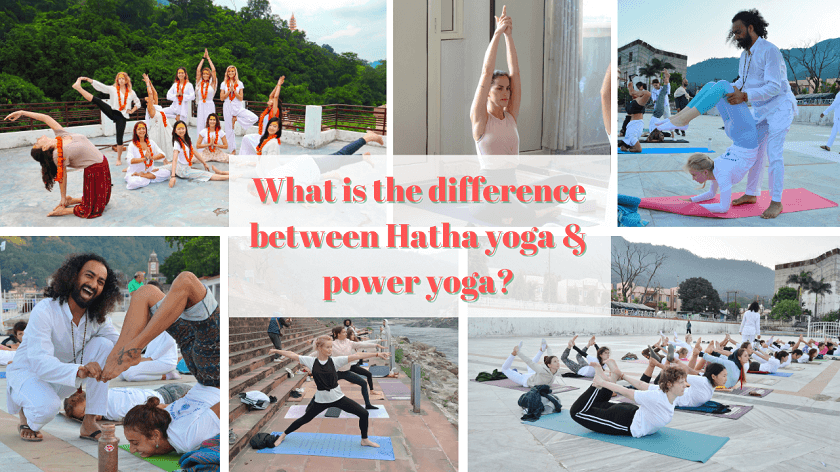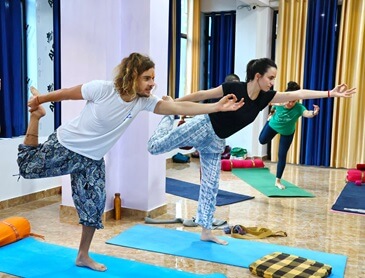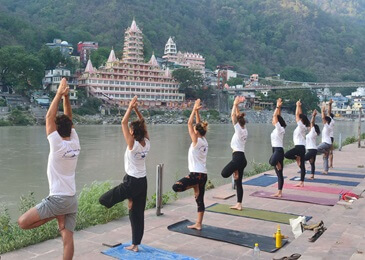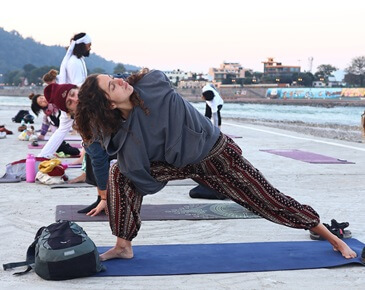
25 Sep 2023
Yoga has been practiced for centuries as a means of promoting physical and mental well-being. Over the years, the practice has evolved into many different forms, each with its own benefits and goals. Two popular forms of yoga are hatha yoga and power yoga. While both share some similarities, they differ in terms of intensity, structure, and goals. In this blog, we will explore the difference between hatha yoga and power yoga.
Hatha Yoga:
Hatha yoga is a traditional form of yoga that focuses on the physical practice of postures (asanas) to promote flexibility, strength, and balance. The word "Hatha" comes from Sanskrit and translates to "powerful" or "strong-willed." In the practice of Hatha Yoga, each posture is held for an extended period of time, allowing the practitioner to focus on breath control and inner awareness.
The practice of hatha yoga usually begins with a series of warm-up exercises to prepare the body for the more challenging postures. These exercises may include gentle stretches, breathing exercises, and relaxation techniques. Once the body is warmed up, the practitioner moves on to the asanas. Each posture is held for several breaths, and the practitioner is encouraged to focus on his or her breath and inner sensations. The practice ends with a relaxation exercise called Savasana, in which the practitioner lies on his back and relaxes body and mind.
Hatha yoga is considered a gentle form of yoga that is suitable for all participants. It is great for relieving stress, improving flexibility and strength, and promoting overall well-being. Hatha yoga is also a great way to prepare the body for meditation, as it calms the mind and promotes inner awareness.
Power Yoga:
Power yoga, on the other hand, is a more dynamic and intense form of yoga that promotes strength, endurance and flexibility. Power yoga is often referred to as "gym yoga" because it is more focused on fitness than traditional yoga practices. It's a great way to work out and build strength while benefiting from the mind-body connection that yoga provides.
Power yoga is a relatively new form of yoga that was developed in the 1990s. It is based on Ashtanga yoga, a traditional form of yoga that involves performing a series of flowing postures in a specific order. However, power yoga is not as rigid as Ashtanga yoga, and the sequences can vary from one class to the next.
In a power yoga class, the practitioner goes through a series of challenging postures such as sun salutations, arm balances, and inversion postures. The postures are performed in a flowing sequence, with each movement synchronized with the breath. The goal of Power Yoga is to build strength and endurance while promoting flexibility and inner awareness.
The difference between Hatha Yoga and Power Yoga:
Hatha yoga and power yoga have some things in common, such as a focus on breath control and inner awareness, but they differ in intensity, structure and goals. Hatha yoga is a gentle form of yoga suitable for all participants, while power yoga is a more intense form of yoga that focuses on building strength and endurance.
In hatha yoga, each posture is held for an extended period of time, allowing the practitioner to focus on breath control and inner awareness. Power yoga, on the other hand, is based on flowing sequences of postures performed in a specific order, with each movement synchronized with the breath.
The goals of hatha yoga are to promote flexibility, strength and balance, and to prepare the body for meditation. Power yoga, on the other hand, is designed to build strength and endurance while promoting flexibility and inner awareness.


